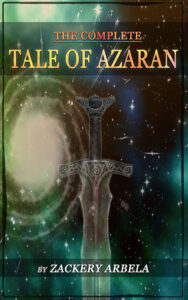 A long time ago, I was going through a back room stacks of an old used book shop, whereupon I came across a well-worn copy of THE ANVIL OF ICE, by Michael Scott Rohan. Like most good fantasy novels, this one initially drew my attention with the cover, but once said cover was cracked, it was the story within that kept it. And this began my journey into the Winter of the World, a forgotten ’80’s classic.
A long time ago, I was going through a back room stacks of an old used book shop, whereupon I came across a well-worn copy of THE ANVIL OF ICE, by Michael Scott Rohan. Like most good fantasy novels, this one initially drew my attention with the cover, but once said cover was cracked, it was the story within that kept it. And this began my journey into the Winter of the World, a forgotten ’80’s classic.
Michael Scott Rohan took a number of tropes that even by 1986 were considered well-worn and breathed new life into them. The story is set in an ice age world, where the ever-advancing glaciers threaten to grind what remains of civilization. IN, this time, beset by barbarism of the most vicious sort, a young smiths apprentice names Elof finds himself embarking on a remarkable journey to greatness…so far the usual fantasy quest, What sets it apart though is the setting.
The author grounds the tale in a brilliant set prehistoric culture, an almost Howard-esque setting where the remains of greater fallen civilizations rose about the ruins of the present ground down by the ever-advancing ice, which is itself but a tool of dark powers intent on wiping out humanity and returning the world to sterility. There is a mythic sense to the tale that is difficult to replicate, almost primal in nature…the closest comparison would be A Wizard of Earthsea. The magic system is not based on spell-slinging, not fireballs or magic missiles here, but in an older sense of the mystical, above all in the power of the smith, the craftsman, for whom the act of creating is as much an occult art as it is practical.
And then there is the Finnish Mythology – after reading the first few books I dove into the Kalevala, to read the tales of Ilmarinen, Louhi and the Sampo. Rohan is certainly not the first to draw upon existing world mythologies as a way to ground his own setting, but back in the days when everything looked to Celtic myth, the legends of King Arthur, or the Norse Ragnarok as their go-to source for gods, heroes and demons, The Winter of the World found a rich vein of literary ore in Finnish mythology and mined it deeply.
All in all, a good series and a hidden treasure.


